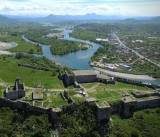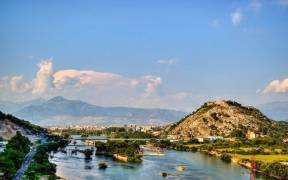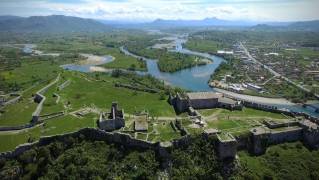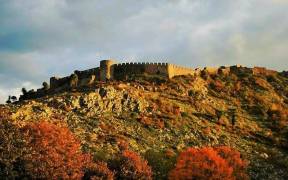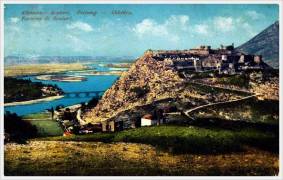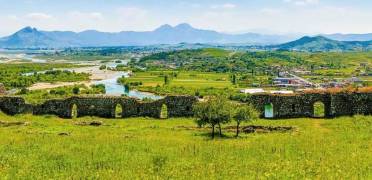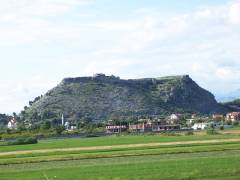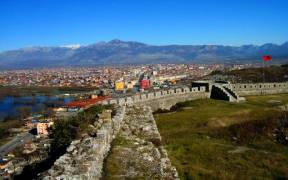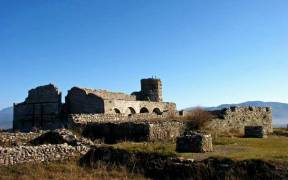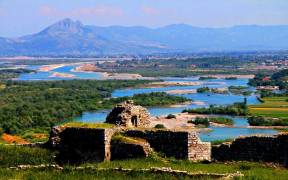Description
Known in history as "ROZAFA". It is located at the southern entrance of the city, in a strategic position, surrounded by the Buna, Drini and Kiri rivers. The surrounding walls are 880m long that surround an area of 35000m2. It is the largest fortress in Albania and among the largest in the Balkans.
Archaeological excavations show that the castle is one of the earliest settlements in the Shkodra basin, dating back 4,000 years. Visitors can see numerous objects and monuments belonging to different historical periods. The name of the fortress is related to a legend of its construction, the walling of a woman named Rozafa, a symbol of endurance, sacrifice and heroism of the people of Shkodran. (Shkodra, A.Parruca)
The shape that Shkodra's castle has today, it took during the rule of the Balshais (XIV century). In this castle we find traces of the classical period, the Middle Ages and the last century. The medieval walls, built with mortar, rise above the Illyrian walls and follow the irregular line of the terrain. Inside the walls of the castle there are two high walls, which divide its surface into three courtyards. The main gate is located on the side where the slope of the hill is smaller, behind it there is a long and wide gallery which on both sides has four spaces that at the time served as protection. After passing through this gallery you find in front of another gate and you enter the first courtyard where there are a series of fortified buildings. The second courtyard occupies a larger area and is located in the central part of the castle. The third courtyard played the role of the castle where the military garrison gathered. These courtyards communicate with each other with small gates. To get out of the castle there were several secret exits which are no longer working.
This castle, due to its importance, deserves the attention of the relevant institutions for the protection of the cultural and historical values that it inherits from generation to generation. In the fortifications and other construction objects, ancient, medieval and even traces of the Bushatli period are still preserved today. In the objects that can be visited, apart from the fortification system, we mention: Saint Stephen's Church, which was later turned into a mosque, the Captain's Office, the Prison, Saranxha and the secret exits. From its walls you can admire the magnificent and picturesque views of Lake Shkodra, the rivers Drin, Buna and Kir.
Reviews
Comments
Claim this business page.
This business has not yet been claimed by the owner or a representative.Opening Hours
Manager


